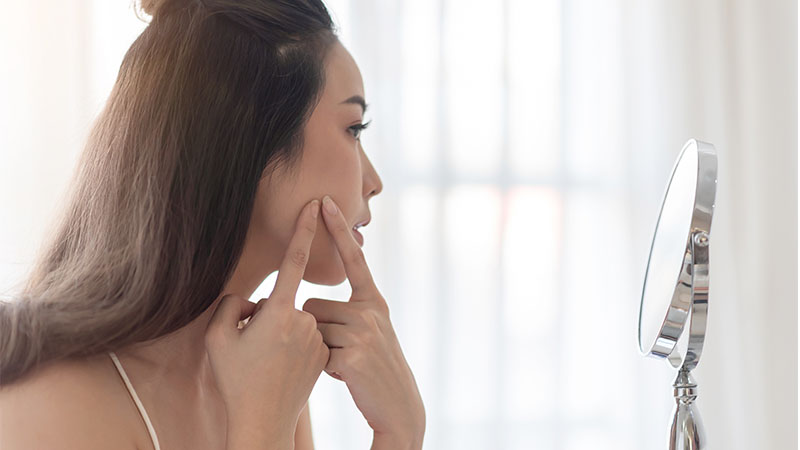Treatments
Acne Treatments
Acne treatments depend on your age, overall health and the severity of the condition. In addition to medication, Northwestern Medicine specialists can help you identify potential triggers—such as diet, sun exposure and stress—that can aggravate the problem, and help you find lifestyle changes that help minimize breakouts.
Treatments may include:
- Benzoyl peroxide: This topical solution can help kill bacteria in your pores and on the surface of your skin.
- Antibiotics: This type of medication can stop or reduce the growth of bacteria that are causing inflammation of the pores. It may be applied topically or taken orally.
- Retinoids: This medication may minimize the development of new pimples and prevent pores from getting plugged.
- Drainage and retraction: This procedure is for removing a large cyst, either surgically or through injectable medication.
- Phototherapy: This process may reduce the number of acne-causing bacteria on the skin.
- Laser surgery: In cases of severe acne, laser surgery can be used to reduce redness and swollen tissue.
When acne lesions are deep, they can leave scars. Treatment for acne scars include:
- Microdermabrasion: This procedure uses an electrical device that gently abrades the skin, vacuums up dead particles and stimulates new growth over several treatments.
- Chemical peels: A chemical solution containing alpha hydroxyl acids, trichloroacetic acid or phenol is applied to the skin, causing the top skin layer to gradually peel off, revealing smoother skin.
- Dermal fillers: Injecting fat, collagen or other materials under the skin can plump up the scarred area.



